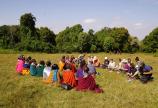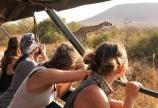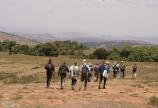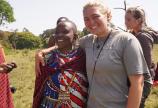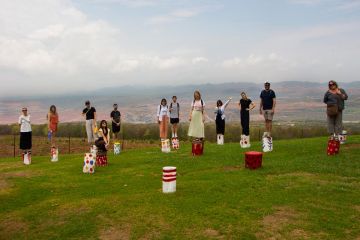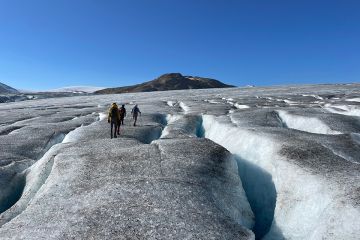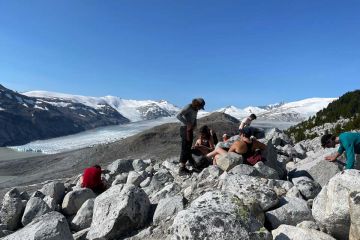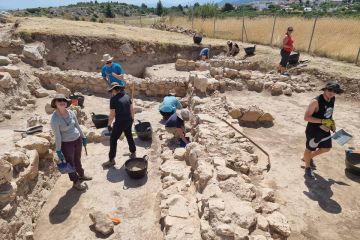Conservation field school in Tanzania
- Anne MacLaurin
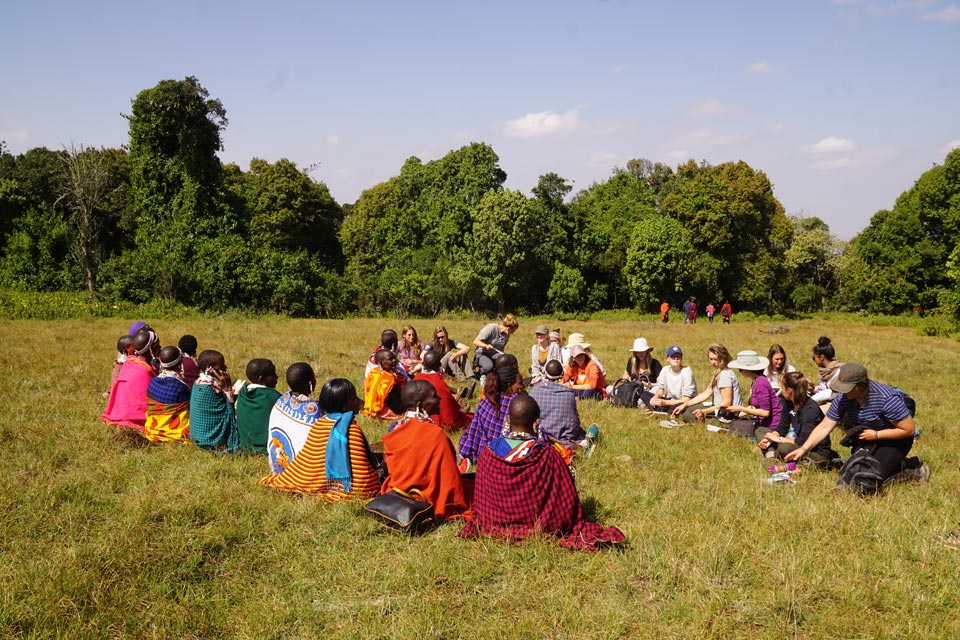
UVic geography students connect with the Loita Maasai of Tanzania
Last August, as the sun set on the Serengeti National Park, 19 UVic geography students and their instructors arrived in Tanzania to begin a month-long field school on conservation management.
Despite the hardships of water rationing and extreme heat, it was a trip of a lifetime for the students, who immersed themselves in the customs and culture of Tanzania while learning about local forest management and ecological conservation practices.
The students—led by geography professor Phil Dearden, adjunct professor Bruce Downie and teaching assistant Emmanuel ole Kileli—divided their time between two locations: the Mkange village near Saadani National Park and the Enguserosambu community forest lands (the traditional homeland of the Loita Maasai).
Conservation best practices shared
Many of the students had not travelled outside Canada, remarked Dearden, but they demonstrated an openness and willingness to engage with the local communities.
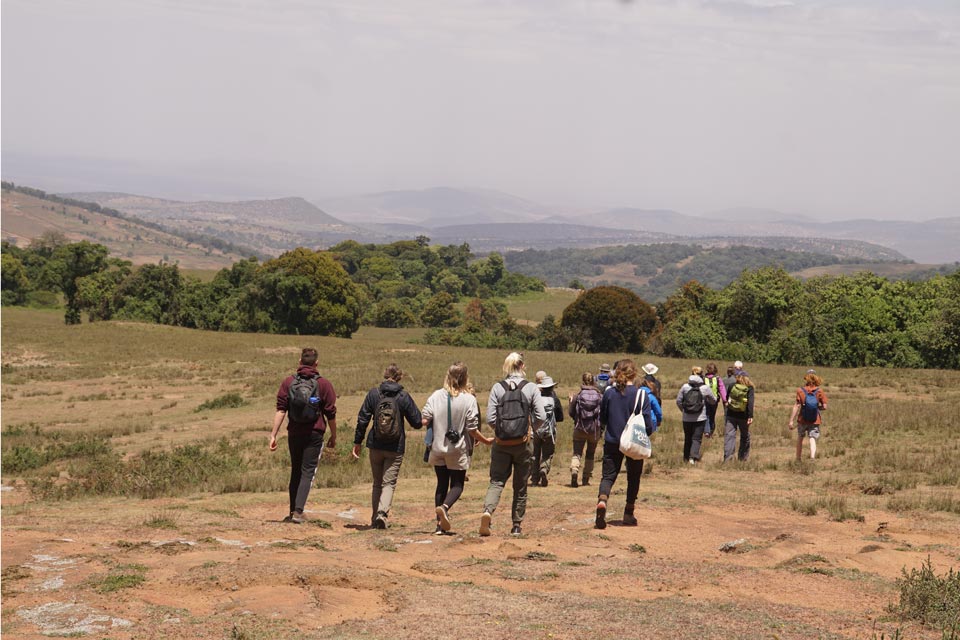
“We were very impressed with the student’s resilience, they never complained even though it was cold and windy in the Maasai camp and water was rationed,” says Dearden.
The students were tasked with group projects with final assignments that related to very practical suggestions on how to improve various aspects of the Maasai conservancy area. The Maasai have been engaged with forest management for generations but were open to sharing ideas and best practices.
Chenoah Shine, a recent geography graduate, said, “my favorite part of the field school was the opportunity to engage with the Loita Maasai people of the Enguroserosambu Ward. This experience was enlightening. I believe the opportunity to try and understand a different epistemological view is so important for the development of compassionate, engaged, critical and open-minded citizens.”
Shine explained how, “in the formation of this project we interviewed locals in their homes, met with the elders council and Enguroserosambu forest trust board, and learned about Maasai forest management practices from our local guides during forest walks.”
UVic and the Loita Maasai have shared a partnership through the Kesho Trust for a number of years. Last spring, the UVic geography department hosted a visit from some members of the Loita Maasai who travelled to BC to share approaches to resource management and traditional lands.
Strong partnerships key to resource planning
Downie, as one of the founding directors of the Kesho Trust, developed a strong partnership between Dearden, UVic geography and the Loita Maasai.
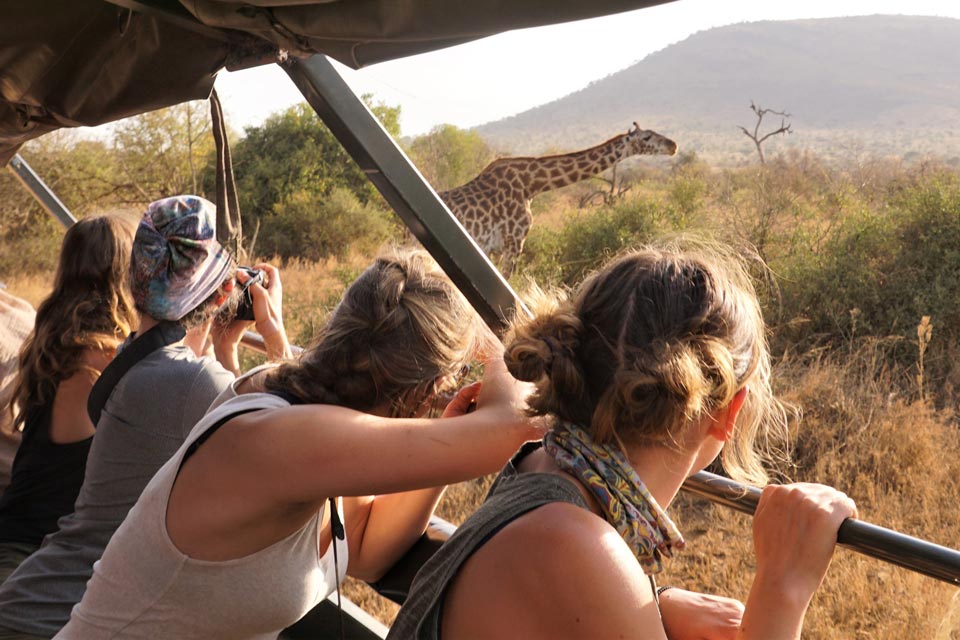
One student reflected that, “Dr. Dearden and Dr. Bruce Downie provided crucially relevant insight on wildlife conservation and they did a good job of tying the topics of ecology and sustainability together.”
Another student remarked, “the field school provided students the opportunity to see what sort of work geographers are doing in the world.”
For fourth-year UVic student Rachel Stewart-Dziama, the Mkange village stood out. “The people were incredibly friendly and welcoming,” she said, “eager to know about our experiences in Tanzania. The village was vibrant with bright colours and bold patterned fabric. Chickens wandered between red mud homes as children played. Women fanned cooking fires, working together in the shade."
She said sitting outside with the Maasai’s Enguserosambu Ward’s Elders’ Council discussing how their communities could help prevent climate change was a moment she would never have imagined.
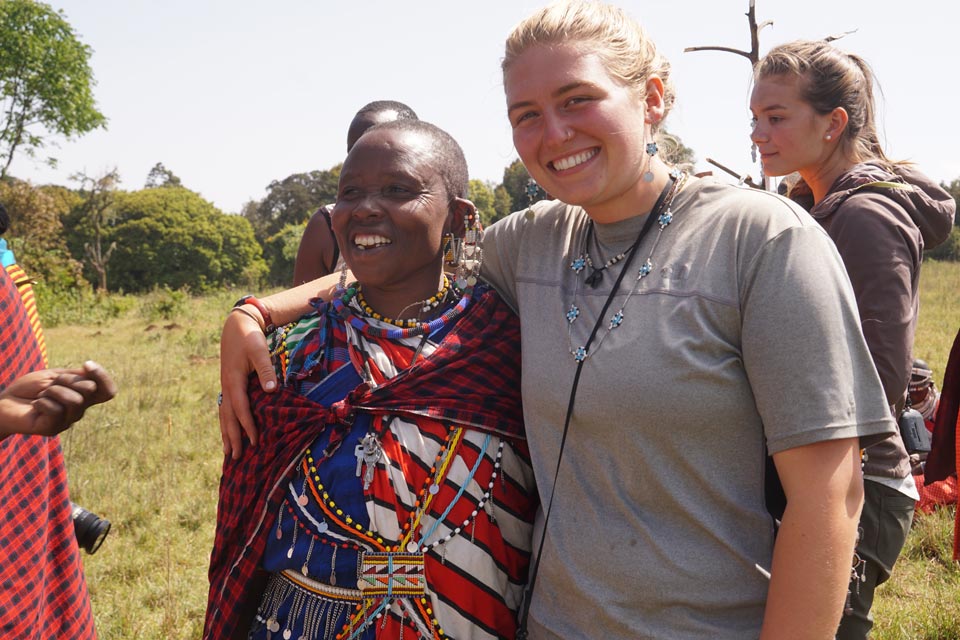
Mitigating climate change
“Their desire to contribute to the global effort forced us to take a closer look at what Canadians are doing and how we can play our part in mitigating climate change,” added Stewart-Dziama.
After the students completed their community projects and before their long flight home, they had an opportunity to go on a safari and really explore the environment that was home to the Maasai.
We arrived at the Serengeti world heritage site at dusk. As we drove into the national park we saw a beautiful male lion babysitting five playful cubs, not five yards from the road. The cubs jumped on him, chewed his mane—it was an incredible experience.
— UVic geography professor Phil Dearden
The students returned to Canada with a new appreciation for other cultures and ways of knowing as well as a deeper commitment to conservation management.
“It was an important experience in my educational career that provided perspective and strategies to meet the growing challenges of our time—it was an inspiration,” said a student.
The Tanzania field school will be offered again in 2020 by the Department of Geography. Please visit the department website for more details.
Photos
In this story
Keywords: field schools, international, student life, world cultures
People: Phil Dearden, Bruce Downie, Emmanuel ole Kileli, Chenoah Shine, Rachel Stewart-Dziama
Publication: The Ring

